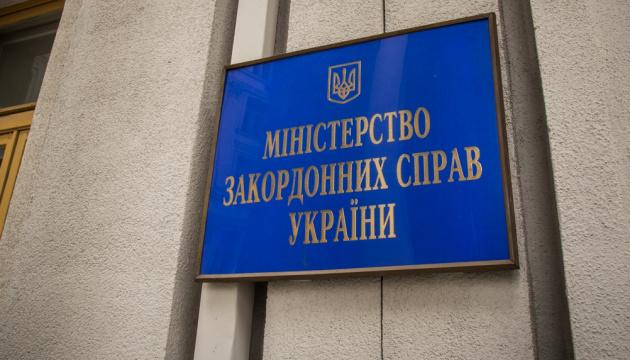The Ministry of Foreign Affairs expressed a protest to the countries whose representatives went to Moscow for the May 9 parade.

The Ministry of Foreign Affairs summoned the diplomats of the countries whose representatives were present at the military parade in Moscow on May 9, and gave them a demarche. The agency did not specify which states’ diplomats are in question. About this it is said in the official notification of the Ministry of Foreign Affairs.
First Deputy Minister Serhii Kyslytsia stated that Ukraine considers the participation of representatives of these countries in the parade in Moscow an unfriendly gesture in a situation where Russia is waging an aggressive war, committing mass murders of Ukrainians, shelling civilian infrastructure, and committing war crimes and crimes against humanity.
“It was emphasized the significant contribution of the Ukrainian people, together with other peoples of the anti-Hitler coalition and the former USSR, to the victory over Nazism 80 years ago. Ukraine will not allow Russia to steal the memory of the past, appropriate the collective victory or belittle the role of the Ukrainian people in it.” – reports the Ministry of Foreign Affairs.
Kyslytsia also reminded that Russia continues to ignore peace initiatives and has not yet accepted the US proposal for a full and unconditional 30-day ceasefire, which Ukraine agreed to on March 11. According to him, even the “parade” truce announced by Russia is not implemented, and shelling of Ukrainian positions continues along the entire front line every day.
“The presence of high-ranking officials of a number of states at events organized by the Kremlin has nothing to do with honoring the memory of the victims and heroes of the Second World War, but in fact is an insult to it, support for modern aggression in Europe, Russia’s war of aggression against Ukraine”, said the statement of the Ministry of Foreign Affairs.
A demarche is a form of diplomatic appeal of a state in the form of a protest, warning or appeal, which aims to induce another country to change its position or refrain from certain actions. It can be both oral and written.





